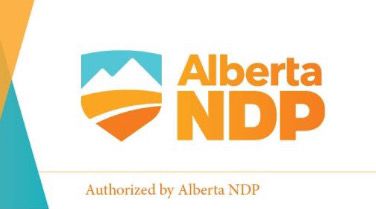
New grants to advance women’s economic security
The Women’s Economic Recovery Challenge Grant program will help address areas of concern for women entrepreneurs and women working in Alberta.
“We are funding community groups to help eliminate obstacles that keep women from participating fully in the economy. When we invest in women, we create a strong foundation for long-term opportunity and economic growth for all Albertans.”
“Alberta’s government is stepping up to ensure that women have the support they need to succeed. This new grant will help women grow their businesses, establish successful careers and create well-paying jobs in industries that are crucial to building this province’s future and economic recovery. Alberta thrives when women are able to reach their full potential.”
Grants are open to non-profit groups, including community organizations, municipalities, First Nation and Métis communities, industry associations and economic development organizations.
Eligible non-profits can apply for up to $250,000 in funding in these focus areas:
- increasing the representation of women and girls in STEM
- increasing female entrepreneurship
- decreasing the challenges women face in the workplace
- helping women transition to a new career, supporting inclusive employer training and updating employment skills
Examples of eligible projects could include the development and implementation of programs and educational materials, delivering training and networking opportunities and executing media or educational campaigns.
Applications can be downloaded from the Women’s Economic Recovery Challenge Grant Program website and submitted via email.
The deadline to apply is Jan. 12, 2022.
Quick facts
- The pandemic disproportionally affected female employment in Alberta.
- In April 2020, female employment was 83 per cent of what it was in February 2020, compared with 87 per cent for men.
- Women who worked part-time were disproportionately affected.
- Of the 182,300 women who lost their employment early in the pandemic, 90,400 (approximately half) were part-time workers, though they made up only 28 per cent of the total female workforce prior to the pandemic.
- By August 2021, female employment had fully recovered to the historical norm.
- Employment for women in August 2021 was 99.5 per cent of the level for August 2019 and 99.7 per cent of the level for August 2018.
- This is a positive sign, dampened only by the fact the pandemic nullified any potential historical growth for female employment.
- Male employment has recovered to 98.7 per cent of both August 2019 and August 2018 levels.
- By March 2021, female part-time employment had fully recovered to the historical norm:
- Female part-time employment in August 2021 was eight per cent higher than in August 2019 and seven per cent higher than in August 2018.
- This recovery exceeds that of full-time employment. (In August 2021, full-time female employment was three per cent lower than in August 2019 and two per cent lower than in August 2018.)
- Female employment has not recovered fully in some industries.
- Female employment in accommodation and food services is 91 per cent of its pre-pandemic (August 2019) level.
- In ‘other services,’ which includes personal services and civil society organizations, female employment has recovered to only 86 per cent of its August 2019 level.
- Women-owned firms are under-represented among small and medium enterprises in Alberta and Canada.
- The majority of women-owned firms account for only 16 per cent of Alberta’s small and medium enterprises, which is less than the national average of 18.02 per cent.
- 22 per cent are equal male-female ownership and 62 per cent of small and medium enterprises in Alberta are majority male-owned.
- The share of equally male-female-owned enterprises in Alberta is the highest in the country, above the national average of 15 per cent.
- The majority of women who lost their jobs during the pandemic in Alberta were employees, not self-employed entrepreneurs.
- Providing targeted supports to build a more inclusive economy is good for all Albertans. Studies show that by advancing gender equality and women’s participation in the economy, Canada could add up to $150 billion in gross domestic product.



